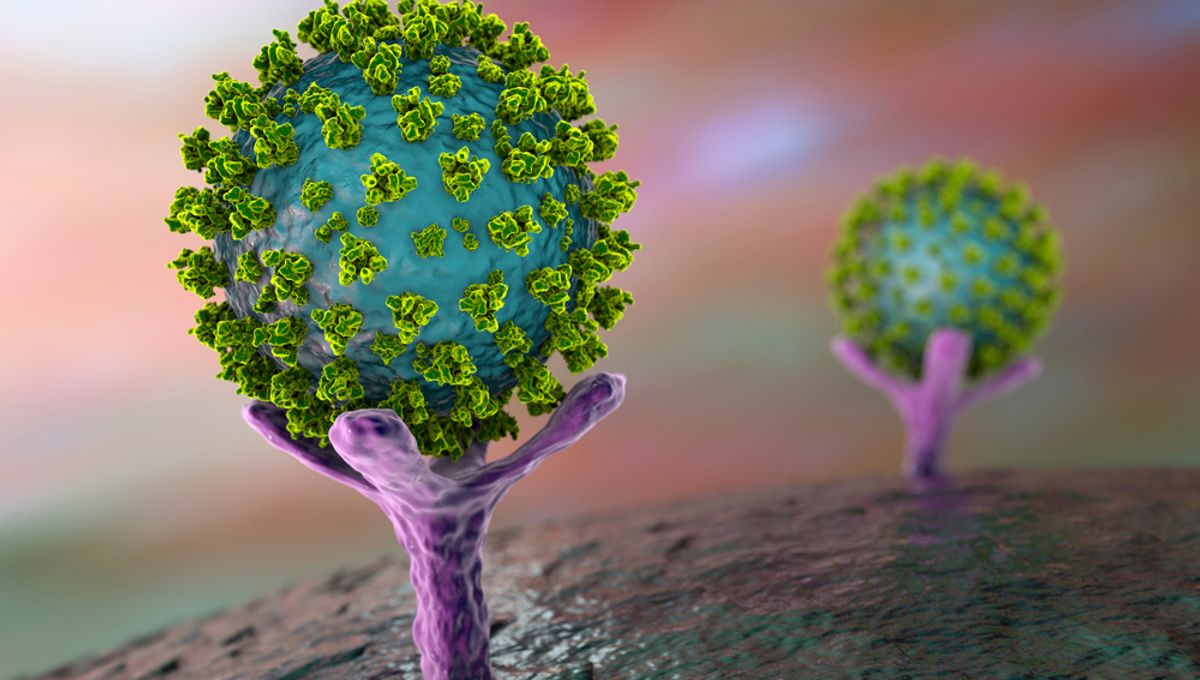
A widely-used drug that currently treats liver disease could prevent COVID-19 infections, a recent study has found. It may also offer protection against emerging variants and other coronaviruses – something that could be vital in the fight against COVID-19, particularly for the most vulnerable individuals.
Existing treatments and vaccines target SARS-CoV-2 – the virus responsible for COVID-19. This drug, ursodeoxycholic acid (UCDA), instead focuses on the virus’s entry point into cells, essentially barring it from infecting them.
“Using almost every approach at our fingertips we showed that an existing drug shuts the door on the virus and can protect us from COVID-19. Importantly, because this drug works on our cells, it is not affected by mutations in the virus and should be effective even as new variants emerge,” Teresa Brevini, first author of the study, said in a statement.
The results still need to be confirmed in a larger clinical trial, but the researchers are hopeful that UCDA could prove a much-needed tool in our COVID-19 arsenal if used to complement existing vaccination programs.
“Vaccines protect us by boosting our immune system so that it can recognise the virus and clear it, or at least weaken it. But vaccines don’t work for everyone – for example patients with a weak immune system – and not everyone have access to them. Also, the virus can mutate to new vaccine-resistant variants,” lead author Dr Fotios Sampaziotis explained.
Therefore, finding alternative means of protection is essential.
UCDA has been used in clinics for many years to treat liver conditions and gallstones, so we already know it’s safe and has minimal side effects. This means that repurposing it for people at high risk of COVID-19 should be relatively straightforward.
“This tablet costs little, can be produced in large quantities fast and easily stored or shipped, which makes it easy to rapidly deploy during outbreaks – especially against vaccine-resistant variants, when it might be the only line of protection while waiting for new vaccines to be developed. We are optimistic that this drug could become an important weapon in our fight against COVID-19,” Sampaziotis added.
UCDA cannot completely prevent SARS-CoV-2 from entering cells, Sampaziotis told New Scientist, but it can control how much of the virus makes it through and how much it replicates once inside.
To reach these conclusions, the team was working on “mini bile duct” organoids – 3D clusters of cells that function as a bile duct. They identified a molecule, FXR, which regulates the ACE2 receptor on a cell’s surface – ACE2 receptors bind to SARS-CoV-2’s infamous spike protein and allow it to enter cells – and can effectively open and close this viral “doorway”. UCDA, they then found, can downregulate FXR and therefore block viral entry into cells. The same results were produced in experiments in “mini-lungs” and “mini-guts”.
To see if the findings were reproducible in living organisms, the researchers turned to hamsters – the gold-standard model for pre-clinical testing of COVID-19 drugs. The hamsters were protected against the delta variant, which was new when the study was carried out.
Further studies in human lungs, and eventually eight human volunteers, also showed UCDA to be effective at protecting against SARS-CoV-2. Meanwhile, data from two independent cohorts of patients demonstrated that people already taking UCDA were less likely to be hospitalized with severe COVID-19.
“Although we will need properly-controlled randomised trials to confirm these findings, the data provide compelling evidence that UDCA could work as a drug to protect against COVID-19 and complement vaccination programmes, particularly in vulnerable population groups,” study author Professor Andrew Owen concluded.
The study is published in Nature.
Source Link: Liver Disease Drug Could Protect Against Future COVID-19 Variants